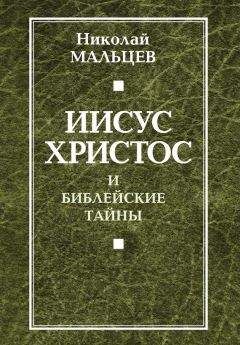John Creasey - Meet The Baron
The other’s words made him gasp. They came quickly, as though the American was afraid of ridicule, but there was no doubting their sincerity.
“Lady Kenton,” said Gerry Long.
Lady Kenton! For a moment Mannering felt beyond the power of speech. He stared at the American, and only the grimness of the other’s eyes and the obvious sincerity of the words stopped him from laughing.
“But why ?” he demanded helplessly.
“It’s pretty clear,” said Long, rather more nasal than he was usually, “that the old dame’s fall and the disappearance of the pearls coincided . . .”
“Not necessarily,” said Mannering quickly.
“But they sure did,” persisted Long. “Look — I know I didn’t take them. You know you didn’t. Who else? She was the only one in the room, apart from the policeman . . .”
“What about Mason, the agency man ?” asked Mannering quickly.
“I’ve thought of him,” said Long. “He wasn’t near the table. In fact, I think he was actually outside the door just then.”
Mannering nodded.
“So it was you, I, or Lady Kenton,” said Long. “We know it wasn’t either of us . . .”
“So it must cancel out to her ladyship,” murmured Mannering.
He was on the alert now, for Long was being very persistent on the “it wasn’t either of us” note. Was it possible that the American did suspect him, and was playing him subtly ?
“That’s as I see it,” said Long.
Was he being sincere, or was he hinting? Mannering would have given a great deal to have known that, but he could only wait until Long had given him a further lead.
“Well,” he said, after a short pause, “that’s all right from our point of view. But the police will suspect you as much as Lady Kenton, if they suspect any of us.”
“You don’t have to tell me what they think about me,” said Long.
There was such bitterness in the words that Mannering looked at the other sharply. In that moment he realised that Gerry Long, for all his apparent ease of manner, for all his carelessness, was taking the affair to heart. The American felt the suspicion keenly. Just for a moment he looked desperate, and the fact came as something of a shock to Mannering.
He had not known the other many weeks, but he had told himself that Gerry Long was the last man in the world to worry much about being under suspicion. He told himself, too, that the young American’s financial position was such that it made that suspicion absurd. But the fact remained that Gerry Long was suffering keenly, and Mannering was worried. He changed his mind about going to the club.
“Let’s get along to my flat,” he suggested. “We can talk this out, Gerry.”
Long agreed. He did not speak during the walk to the flat, and the impression of desperation that Mannering had gathered on the previous night and which he had seen that morning was heightened. There was something on Gerry Long’s mind that was worrying him a great deal more than seemed justifiable.
An hour later Mannering told himself that the American left the flat in a more cheerful frame of mind than when he had reached it. But Mannering was still worried. Long had discussed the theft thoroughly, but he had given Mannering no clue to the reason for his anxiety; yet that anxiety was very real, Mannering was sure.
“And all,” murmured the cracksman to himself, “for Lady Kenton’s pearls.”
There was a sardonic smile on his lips as he unlocked the small desk against the wall and took the pearls from their hiding-place.
His words to Lady Kenton on the previous night had not been entirely empty. The string was beautifully graduated, worth every penny of five thousand pounds, and he wondered at the Dowager’s extravagance. It had been an exceptional present, and there seemed no real reason for it. Certainly he was half wishing now that she had chosen something more modest.
He slipped it back into the hiding-place, lit his cigarette, prepared himself a small lunch, and then went to see Bristow. He had intended to call at the Yard in any case, but his talk with Gerry Long had made him precipitate the visit. He was worried about Long, and it was possible that he could clear the situation after a talk with Bristow.
Bristow was his usual cheerful self, and Sergeant Tring, looking rather pleased with life, touched his forehead and hoped that Mannering wasn’t feeling tired after the previous day’s exertions.
“No,” said Mannering, “and I’ve never seen anyone exert himself less than you do. Why didn’t you order the doors to be shut?”
“Too late when we discovered the stuff missing,” said Tring briefly.
When the sergeant had gone, closing the door quietly behind him, the detective offered cigarettes, and smiled grimly.
“We didn’t have much luck on our first job together,” he said, as Mannering struck a match.
Mannering laughed, a little uncertainly.
“You seem confoundedly happy about it,” he countered.
Bristow shrugged. Mannering gained another insight into the character of the man whom he was rapidly beginning to like and to admire.
“There isn’t much use in getting all het-up,” said the detective. “It doesn’t help us, nor anyone else. Besides, we always get our man in the long run.”
“Always ?” Mannering’s brows went up.
“Ninety-nine times in a hundred, anyhow,” said Bristow cheerfully.
“That suggests,” Mannering said slowly, “that you believe last night’s job was another one from your man — the Baron?”
Bristow nodded, and the other noticed the glint of admiration in the detective’s eyes. Bristow was so used to finding herself dealing with men of very moderate intellect that it was a pleasure to talk with someone who grasped the essentials quickly.
“I mean just that,” he said. “I think Baron — or the Baron; call him what you like — did the job. The dummies were slipped into Long’s pocket to make him seem . . .”
“Guilty?” asked Mannering.
“Well, to give that impression at first sight,” said Bristow. “You don’t have to look far before you realise Long was there for the other man to hang a hat on. While Tring and the others were worrying about the American, off goes the real thief.”
“A servant or a guest?”
Bristow rubbed his chin. He looked at Mannering thought-fully, as though wondering just how far he could trust his amateur helper. Apparently his decision was favourable.
“Well,” he said, “I’m not really sure, of course. But there’s one guest who’s being watched very carefully, Mannering, and whose bank-balance might not be quite so high as we think.”
Mannering felt just the same fear as he had when he had been with Gerry Long. This time he managed to control himself, and he did not change colour; but he took another cigarette from his case and stuck it between his lips, glad of the cover it gave. It was disconcerting to be faced with a statement like that, and he did not enjoy it. His heart was beating fast, and several seconds passed before he spoke.
“Yes ?” he said, and he was surprised that his voice sounded natural.
“Yes,” said Bristow heavily. “It seems fantastic, of course, but have you noticed, Mannering, that Lady Kenton has been present at every robbery ?”
“Lady Kenton ?”
Mannering stared at his man, completely dumbfounded; there was no need at all for the simulation of surprise; Long, then Bristow, with the same fantastic notion!
“Look at it through plain glasses,” said Bristow, a little disgruntled by Mannering’s obvious astonishment, “and you can see what I mean, can’t you? There was that paltry brooch. She worried the life out of me about the thing, and it doesn’t need a very long stretch of imagination to believe that she did it to keep me worrying about her as a victim. And she has been at every robbery.”
Mannering took a deep breath, and forced himself to make the obvious rejoinder.
“So have I,” he said.
Bristow grinned.
“Yes,” he admitted, “I’m not forgetting you, but I’m hoping for the best. Seriously, though, why did she fall on that table last night? Did you see anything in the way for her to stumble over?”
Mannering shook his head. There was more relish in these conversations with the detective than in anything else he could remember, and he was beginning to enjoy himself thoroughly.
“There you are,” said Bristow triumphantly. “She says that she doesn’t know what caused her to slip, but she knows that something was in her way. Well — it’s a tall story.”
Mannering remembered, very vividly, how he had stretched his foot for the Countess to fall over.
“It is,” he admitted. “But, damn it, Bristow — the Dowager Countess of Kenton . . .”
“Why not?” demanded Bristow, with vigour. “There’s another thing, Mannering. That necklace, according to reports, was worth about five thousand pounds. Now, Lady Kenton hardly knew Marie Overndon. True, she knew the Wagnalls in America; but a five-thousand-pound wedding-gift!”
“That had occurred to me,” said Mannering, very serious-
“It shouts suspicion,” said Bristow grimly, “and that’s one reason why I’m wary of it. I don’t like things shouting at me. They call the wrong tune too often.”
“There’s one thing,” said Mannering thoughtfully. “The first robbery the Baron was concerned in was of her own brooch, wasn’t it? And it included a bang over the head for the housekeeper. I can imagine Lady Kenton doing all kinds of things, but not that.”
“It might have given her the idea,” said Bristow. He was obviously pleased with the theory, and it would take a lot to shake him from it. Mannering felt that things could not have gone better. Lady Kenton wasn’t in the slightest danger, for her reputation and her behaviour would stand the strictest examination. And while Bristow was barking up the wrong tree Mannering felt that he would be able to do a great many things.
Of course, Bristow would be forced away from the suspicion soon. He would realise from the reports he had heard that the Baron’s activities — for instance, the lessons in lock-picking — were beyond the scope of the Dowager; but, while Bristow was chasing his hare, well and good.
But Mannering was still concerned about Gerry Long.
“The only reason Long can have for worrying,” said Bristow, when Mannering mentioned the fact, “is a knowledge of the job. If he’s not guilty . . .”
“And you don’t think he is?” Mannering asked.
“No,” said Bristow. Then he added more warily: “That is, I’ve my doubts, but if he is seriously concerned about the affair it’s funny.”
Mannering broke in, with some warmth.
“He wouldn’t be the first man to be worried by an accusation which was unjust, would he?”
“No-o,” admitted Bristow. He lit a cigarette and watched the smoke curling towards the ceiling. “When all’s said and done, Mannering, the business is darned complicated. We are stopped because we don’t know whether the real pearls or the dummies were on that table all day. It’s quite possible that the actual theft took place before the wedding, and the little affair yesterday isn’t connected with it.”
“Then bust goes your case against Lady Kenton.”
“I haven’t got a case against Lady Kenton,” said Bristow bluntly. “I’ve just got an idea that she might be more than she seems, and it will be worth your while to watch her. Er — that is, if you’re still anxious to carry on.”
Mannering laughed, to the Inspector’s obvious pleasure.
“I’m enjoying it,” he said, “although I’m annoyed about the pearls. I suppose” — his eyes were fixed on Bristow curiously — “there’s no doubt but that there were genuine pearls. I mean, if only dummies were given — and Gerry Long had the dummies . . .”
Bristow shook his head and smiled.
“That won’t wash,” he said. “We’re not altogether mugs here, Mannering. We’ve had that purchase checked up. Lady Kenton actually bought the pearls and paid for them by cheque. She had them delivered by special messenger, and they reached the Park Square house the day before yesterday. They cost four thousand seven hundred and fifty pounds, and they were supplied by Daulby and Co., of Piccadilly.”
Mannering chuckled with genuine humour.
“A complete history, eh? That certainly disposes of my hunch. So we’re faced with the fact that the real pearls disappeared between yesterday morning and yesterday afternoon. The incident when I was there with Lady Kenton might mean something or might not.”
“That’s it,” said Bristow, with a worried smile. “It’s a ticklish job, I’ll admit. I can’t really make head-or-tail of it. Your friend Long makes another complication, and I can’t get it out of my head that he’s in it, somewhere.”
“I wish we could clean it up, if only to clear him,” said Mannering.
“I’ve got different motives, but I’d give a lot to catch our man,” said Bristow. “Well — excuse me a minute, will you ?”
The telephone-bell rang out as he spoke. Mannering nodded and studied the ceiling, hearing Bristow’s snapped words into the mouthpiece, but not gathering the drift of them.
He knew, however, that the message had concerned the affair of the pearls, for Bristow turned round and was frowning as he replaced the receiver. Again that ridiculous feeling of panic swept through Mannering. Was it possible that he had been suspected all the time, and that the pearls had been found in the service-flat? The police weren’t fools. . . .
Bristow’s first words relieved him on that score, but worried him on another unexpectedly.
“It rather looks,” admitted the detective, “as though we had our man, first time; or, at least, Tanker did . . .”
“Tanker?” Mannering spoke more to gain time than for any other reason. So they were back at Gerry Long.
Bristow smiled frostily.
“Sergeant Tring, or Tanker,” he explained. “But the point is, Mannering, that Long has apparently done this kind of thing before . . .”
For the second time Mannering stared at the detective as if he was seeing a ghost. The statement seemed ridiculous, but Bristow had made it in all seriousness. Gerry Long had done this kind of thing before! God! Where would this end?
“This is getting beyond me,” he admitted, after a pause. He lit a cigarette from the butt of his first, trying to picture Long in the role of a cracksman. Damn it, the idea was absurd!
Bristow pressed his lips together.
“The position’s clarified now,” he said. “You know Long’s a collector of precious stones?”
“We’ve often compared notes,” said Mannering.
“He doesn’t seem to mind much how he collects them,” said Bristow grimly. “We sent to New York for a report as soon as we heard of the trouble last night. They radioed back at once. Long has twice been mixed up in a scandal of this nature, and twice he’s been able to buy his way out of trouble.”
“Buy his way?” muttered Mannering.
“It can be done,” said Bristow. “Over here they’d plead that he suffered from kleptomania and . . . Well, being in his position, he might get off with a warning. Over there they’ve another way out. Anyhow, Long’s committed similar crimes on two separate occasions, and it’s pretty obvious what’s happened this time.”




